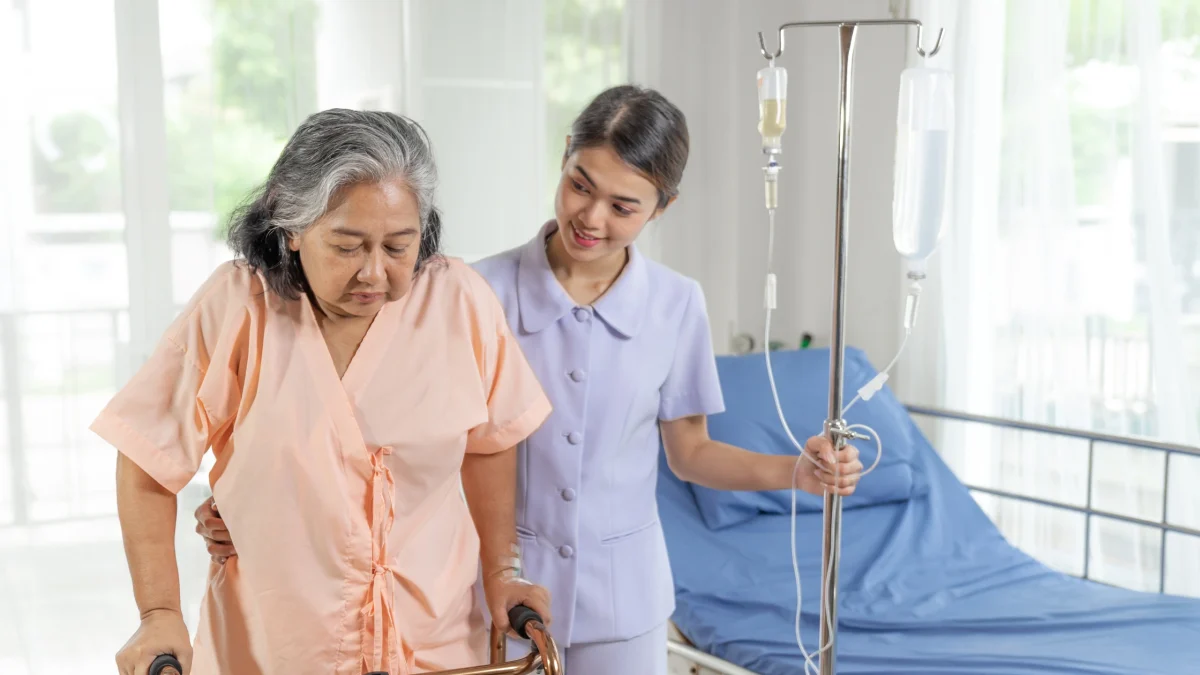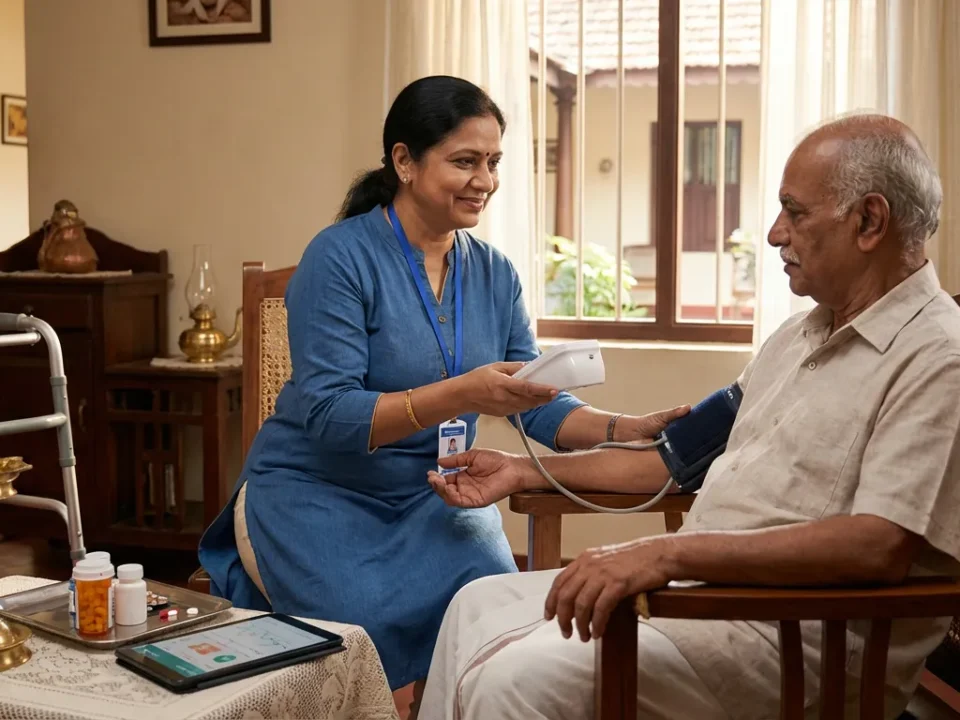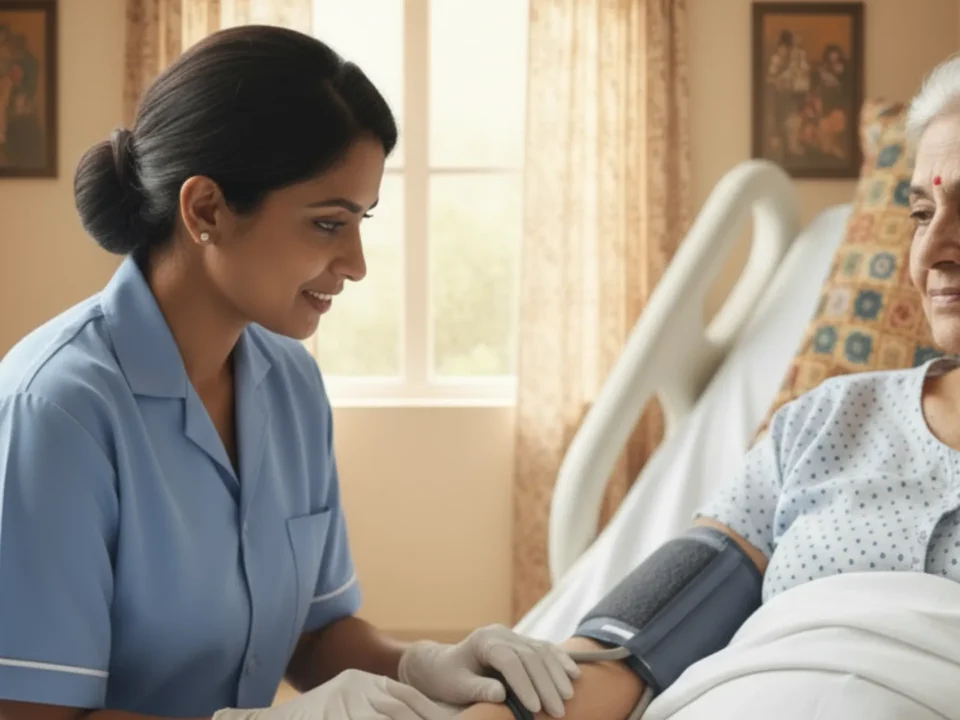The Role of Patient Caretakers in Hospitals

How Bedridden Care at Home Enhances Comfort and Quality of Life
November 23, 2024
The Role of Home Nurses in Managing Chronic Illnesses for Bangaloreans
December 18, 2024Patient caretakers are the most important members of any hospital team. Though they are not doctors or nurses, they play a vital role in ensuring that patients receive the care and attention they need to feel comfortable and recover better. From assisting with daily tasks to offering emotional support, their presence makes a significant impact on the overall patient experience.
What Do Patient Caretakers Do in Hospitals?
For facilitating the patient’s stay at the hospital, the caretakers collaborate with the patients with variety of duties. They help them with day-to-day tasks like taking shower, eating, getting dressed and going around for the walk, etc. They frequently check the patient’s condition and make sure of the medicines to be taken on time.
Even maintaining the patient’s surrounding cleanliness and having an eye on patient makes an extraordinary help to the nurses. The patient caretaker plays a vital role by assisting and offering a consolation, by being the first point of contact for the patient.
A Day in the Life of a Patient Caretaker
The schedule for the caretakers is always full with the duties and responsibilities towards their patients. In order to take care of the patient’s medical examination and treatments these caretakers start their day early than any nurse staff on duty. As guided by physicians, these caretakers start the patient’s day with the nutritional dietary breakfast, and transfer them for medical examinations or sessions for treatment. These essentials help the patients to maintain their physically active lifestyle.
The caretakers keep checking the patient’s needs by assisting with pharmaceutical assistance, and lunch assistance, without exception showering the emotional touch with every work they do. They ensure that small requests or needs of the patients like changing of the bed or assisting in bringing a glass of drinking water are met without being hindered for long or even for a second note. Not only these small or frequently seen tasks, some caretakers also go beyond their duty or job roles to assist and help those patients who generally do not prefer to be around a many people or has an introvert behaviour, which lead to being alone.
How Do They Impact Patient Recovery?
Not only these patient caretakers assist the day-to-day activity of the patients, but also are essential in improving their mental and emotional well-being. A friendly caretaker may help the patient feel less stressed and more secured in the strange hospital environment.
There is a case with one of the patients, where she described how, during her recuperation phase, her caregiver would bring some magazines to refresh from boredom or just talk with her out of the general daily tasks. This humble gesture made the big difference and the stay at hospital smoothened for the patient. Caretakers generally are responsible and accounted for the patient’s quick recovery with ease and confidence.
Challenges Faced by Caretakers
It is not an easy to job to be a caretaker. It is a great deal to maintain the patient and endure with emotional fortitude. Some of the common challenges they face are:
- Long Working Hours: Caretakers feel exhausted due to the long working hours and some unprecedented extended shifts.
- Emotional Stress: The long persisting care given for patients or grieving families may lead to take emotional stress and deprive their mental health.
- Reluctant and Uncooperative Patient or Families: Caretakers often faces some reluctant behavioural patients or families who has irrational requirements, leading to additional stress to handle them.
These difficulties were put into light when the Pandemic COVID – 19 cases were exploded, where caregivers had to balance rigorous safety precautions while maintaining the emotional touch and support with the patients.
How Can We Support Them?
Caretakers must be supported in order to carry out their responsibilities efficiently and effectively. Below are some of the ways on how hospitals and families can assist the caretakers in it:
- Advanced Training: To prepare the caregivers for various scenarios, like managing those patients who are suffering from dementia or chronic illness. It will enhance their capability even more.
- Emotional Support: Caregivers also requires the emotional support to remove the grief sometimes through regular therapy sessions. This will remove chances of entangling themselves under stress and burnouts.
- Appreciation: A small act of appreciation would mean a lot to these caretakers. A simple “thank you” boosts the morale and motivates them to do even better than before, every time.
- Cooperation: Families of the patient, must ensure that the requirements should be given in detail and in prior to the caregivers so that the caretaking can be done with ease and no sudden or unprecedented needless demands will be faced later.
Why This Matters
When people talk about healthcare, they frequently don’t speak about the caretakers. However, they are the ones who ensures that the care goes beyond the medicines and therapies. It is their efforts, which creates a bridge between the patients and the medical staff.
The more the people learn about their functions and the difficulties, the more their efforts get appreciated. Their difficulty in work might get a little more fulfilling with collaboration and goodwill form patients and families.
Final Thoughts
In hospitals, patient caretakers are the unsung heroes who work in the background ensuring the finest care possible. Their contribution is infinite with their indulgence in immense day-to-day to tasks, and emotional support they provide.
Now, you do not forget to appreciate the caretakers’ efforts when you or your loved ones are in the hospital. Do you or your family member have any experience as same, with the caretaker? We would love to hear it in the comments!




